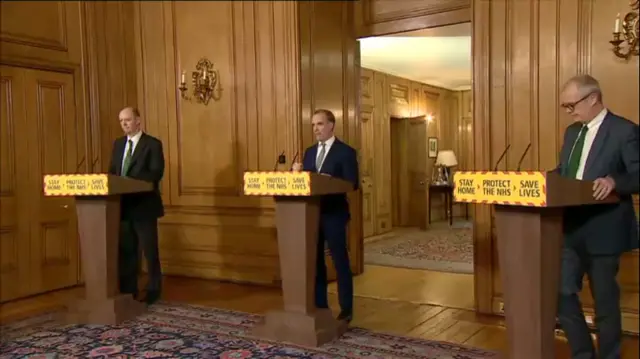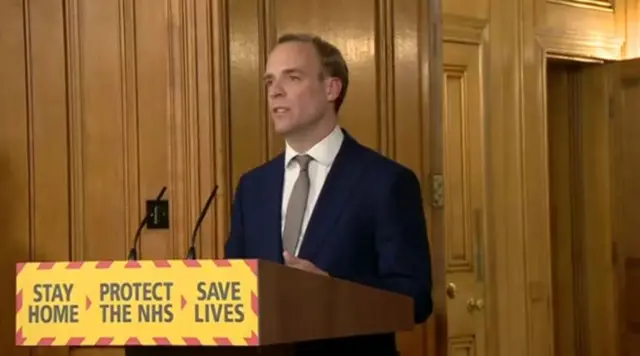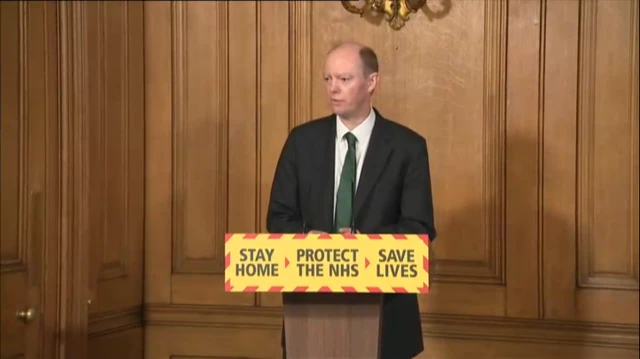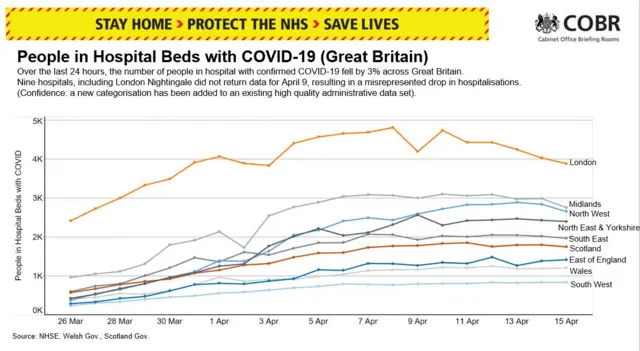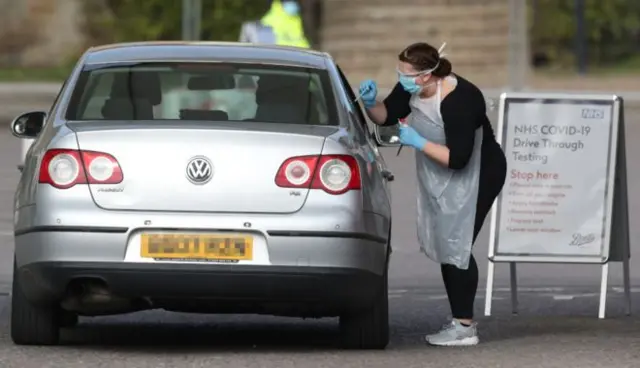Care home infections 'need to come down'published at 17:52 BST 16 April 2020
Asked about the rate of transmission within old people's homes, Sir Patrick Vallance says the average rate may be higher in "certain care settings".
He says it is "not entirely clear" what contribution that is making to the wider picture, but adds, "those numbers need to come down".
There's also a question on whether the UK has not recommended face masks for everyone because of fears it would lead to a shortage for healthcare workers.
Prof Chris Whitty, the UK government’s chief medical adviser, says this was "one of the reasons" the WHO advised against general mask use.
He says the evidence in favour of general mask-wearing is "weak", but the issue is being looked at again.
